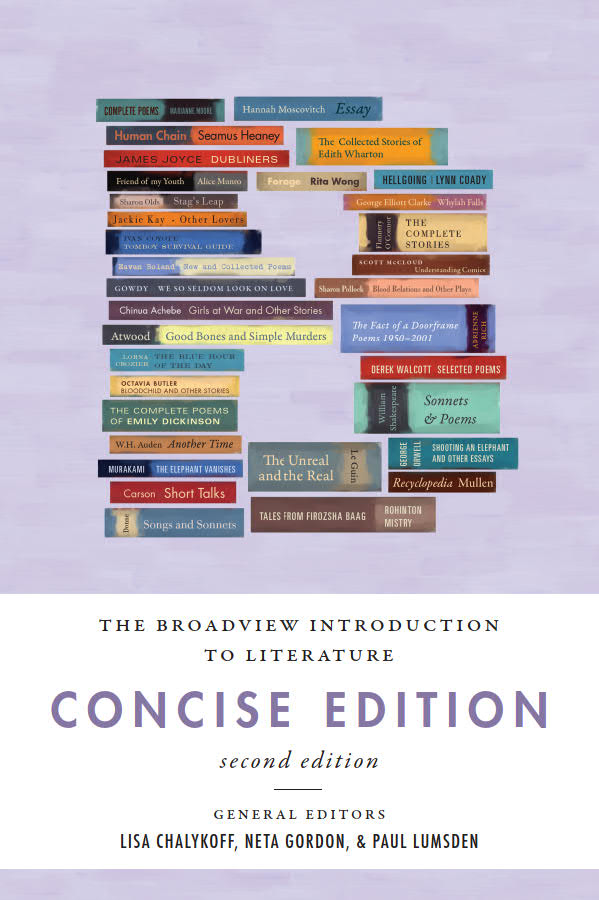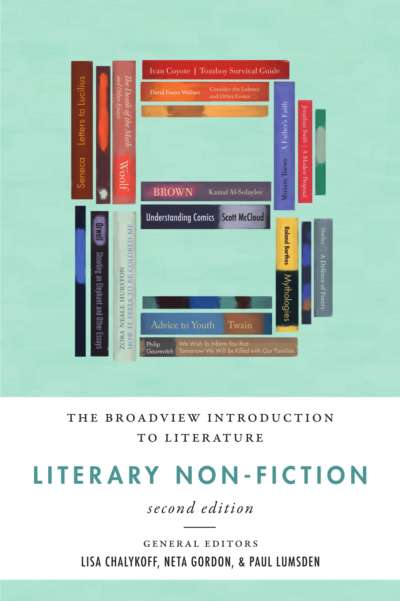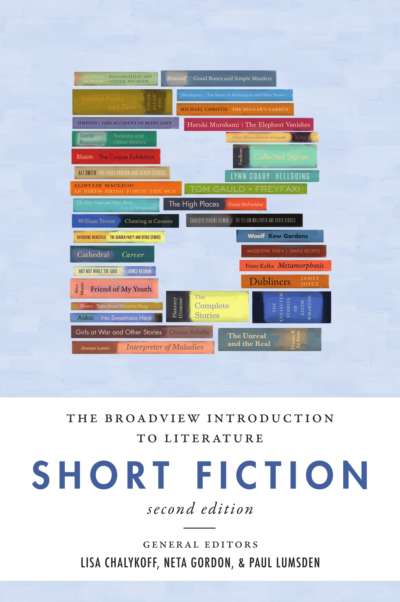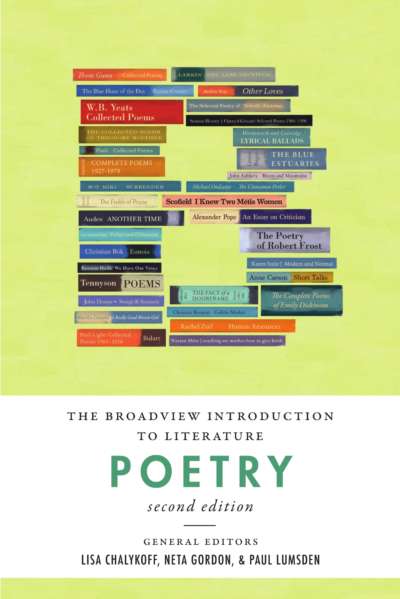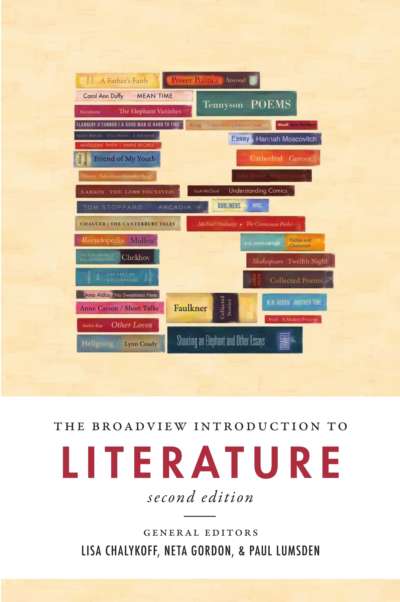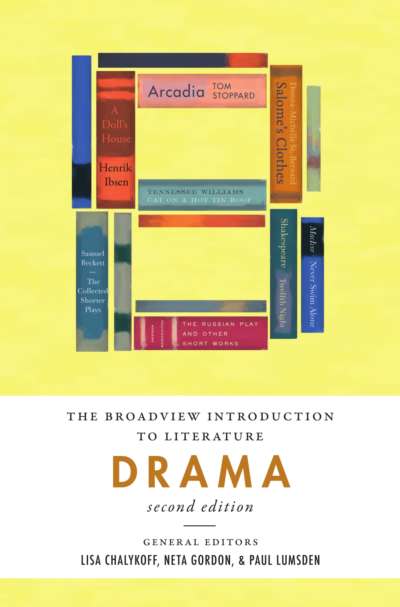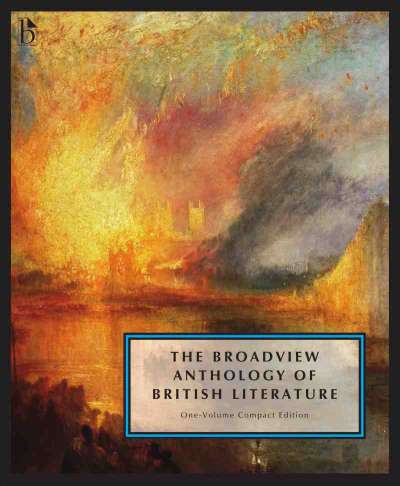Preface
Acknowledgements
The Study of Literature
Short Fiction
Introduction
Sir Thomas Malory (c. 1415–1471)
Edgar Allan Poe (1809–1849)
Kate Chopin (1850–1904)
Guy de Maupassant (1850–1893)
Joseph Conrad (1857–1924)
Anton Pavlovich Chekhov (1860–1904)
Charlotte Perkins Gilman (1860–1935)
Edith Wharton (1862-1937)
Susan Glaspell (1876–1948)
James Joyce (1882–1941)
Franz Kafka (1883–1924)
Katherine Mansfield (1888–1923)
Ernest Hemingway (1899–1961)
Flannery O’Connor (1925–1964)
- “A Good Man Is Hard to Find”
Ursula K. Le Guin (1929–2018)
- “The Ones Who Walk Away from Omelas”
Chinua Achebe (1930–2013)
Alice Munro (b. 1931)
Alistair MacLeod (1936–2014)
- “As Birds Bring Forth the Sun”
Margaret Atwood (b. 1939)
Thomas King (b. 1943)
- “A Short History of Indians in Canada”
Octavia Butler (1947–2006)
Haruki Murakami (b. 1949)
- “On Seeing the 100% Perfect Girl One Beautiful April Morning”
Ian McEwan (b.1948)
Barbara Gowdy (b. 1950)
- “We So Seldom Look on Love”
Rohinton Mistry (b. 1952)
Kazuo Ishiguro (b. 1954)
Eden Robinson (b. 1968)
Lynn Coady (b. 1970)
Leanne Betasamosake Simpson (b. 1971)
David Bezmozgis (b. 1973)
Hassan Blasim (b. 1973)
- “The Nightmare of Carlos Fuentes”
Anders Nilsen (b. 1973)
- “Toward a Conceptual Framework for Understanding Your Individual Relationship to the Totality of the Universe in Four Simple Diagrams”
Jonathan Safran Foer (b. 1977)
Drama
Introduction
Sophocles (c. 496–c. 406 BCE)
William Shakespeare (1564–1616)
Henrik Ibsen (1828–1906)
Oscar Wilde (1854–1900)
- The Importance of Being Earnest
Sharon Pollock (b. 1936)
Geoff Kavanagh (b. 1961)
Hannah Moscovitch (b. 1978)
Poetry
Introduction
Geoffrey Chaucer (c. 1343–1400)
Sir Thomas Wyatt (c. 1503–1542)
- [“The long love that in my thought doth harbour”]
- [“They flee from me that sometime did me seek”]
- [“Whoso list to hunt, I know where is an hind”]
Sir Walter Ralegh (c. 1554–1618)
- “The Nymph’s Reply to the Shepherd”
Christopher Marlowe (1564–1593)
- “The Passionate Shepherd to His Love”
William Shakespeare (1564–1616)
- Sonnets
- 18 [“Shall I compare thee to a summer’s day?”]
- 29 [“When in disgrace with fortune and men’s eyes”]
- 73 [“That time of year thou mayst in me behold”]
- 116 [“Let me not to the marriage of true minds”]
- 130 [“My mistress’ eyes are nothing like the sun”]
John Donne (1572–1631)
- “The Flea”
- from Holy Sonnets
- 10 [“Death be not proud, though some have called thee”]
- 14 [“Batter my heart, three personed God; for you”]
- “A Valediction: Forbidding Mourning”
Lady Mary Wroth (1587–1653?)
- from Pamphilia to Amphilanthus
- Song [“Love, a child, is ever crying”]
- 77 [“In this strange labyrinth how shall I turn?”]
George Herbert (1593–1633)
- “The Altar”
- “Easter Wings”
John Milton (1608–1674)
Anne Bradstreet (1612–1672)
Andrew Marvell (1621–1678)
Anna Laetitia Barbauld (1743–1825)
Phillis Wheatley (1753–1784)
- “On Being Brought from Africa to America”
William Blake (1757–1827)
- from Songs of Innocence
- from Songs of Experience
William Wordsworth (1770–1850)
- “Lines Written a Few Miles above Tintern Abbey”
- [“The world is too much with us”]
Samuel Taylor Coleridge (1772–1834)
George Gordon, Lord Byron (1788–1824)
Percy Bysshe Shelley (1792–1822)
- “Ozymandias”
- “Ode to the West Wind”
John Keats (1795–1821)
- “When I Have Fears that I May Cease to Be”
- “La Belle Dame sans Merci: A Ballad”
- “Ode to a Nightingale”
- “Ode on a Grecian Urn”
- “To Autumn”
Elizabeth Barrett Browning (1806–1861)
- from Sonnets from the Portuguese
- Sonnet 22 [“When our two souls stand up erect and strong”]
- Sonnet 24 [“Let the world’s sharpness like a clasping knife”]
- Sonnet 43 [“How do I love thee? Let me count the ways”]
Edgar Allan Poe (1809–1849)
Alfred, Lord Tennyson (1809–1892)
- “The Lady of Shalott”
- “Ulysses”
- “The Charge of the Light Brigade”
Robert Browning (1812–1889)
Emily Brontë (1818–1848)
- [“Ah! why, because the dazzling sun”]
- [“No coward soul is mine”]
- [“Often rebuked, yet always back returning”]
- [“I’ll come when thou art saddest”]
Walt Whitman (1819–1892)
- from Song of Myself
- 1 [“I celebrate myself, and sing myself ”]
- “I Hear America Singing”
- “When I Heard the Learn’d Astronomer”
Emily Dickinson (1830–1886)
- 249 [“Wild Nights—Wild Nights!”]
- 288 [“I’m Nobody! Who are you?”]
- 341 [“After great pain, a formal feeling comes”]
- 465 [“I heard a Fly buzz—when I died”]
- 712 [“Because I could not stop for Death”]
- 754 [“My Life had stood—a Loaded Gun”]
- 1129 [“Tell all the Truth but tell it slant”]
Christina Rossetti (1830–1894)
Gerard Manley Hopkins (1844–1889)
- “God’s Grandeur”
- “The Windhover”
W.B. Yeats (1865–1939)
- “Easter 1916”
- “The Second Coming”
- “Leda and the Swan”
- “Sailing to Byzantium”
Paul Laurence Dunbar (1872–1906)
Robert Frost (1874–1963)
- “The Road Not Taken”
- “Stopping by Woods on a Snowy Evening”
Wallace Stevens (1879–1955)
- “Thirteen Ways of Looking at a Blackbird”
Mina Loy (1882–1966)
- “Human Cylinders”
- “Gertrude Stein” (sites.broadviewpress.com/BIL)
William Carlos Williams (1883–1963)
- “The Red Wheelbarrow”
- “Spring and All”
- “This Is Just to Say”
- “Landscape with the Fall of Icarus”
Ezra Pound (1885–1972)
- “The River-Merchant’s Wife: A Letter”
- “In a Station of the Metro”
Marianne Moore (1887–1972)
- “Poetry”
- “Poetry” (revised version)
T.S. Eliot (1888–1965)
- “The Love Song of J. Alfred Prufrock”
- “Journey of the Magi”
Edna St. Vincent Millay (1892–1950)
- [“I, being born a woman and distressed”]
- [“What lips my lips have kissed, and where, and why”]
Wilfred Owen (1893–1918)
- “Anthem for Doomed Youth”
- “Dulce et Decorum Est”
E.E. Cummings (1894–1962)
- [“in Just–”]
- [“somewhere i have never travelled,gladly beyond”]
- [“anyone lived in a pretty how town”]
Langston Hughes (1902–1967)
- “The Negro Speaks of Rivers”
- “Harlem (2)”
Stevie Smith (1902–1971)
- “Not Waving but Drowning”
Earle Birney (1904–1995)
- “Vancouver Lights”
- “The Bear on the Delhi Road”
W.H. Auden (1907–1973)
- “Funeral Blues”
- “Musée des Beaux Arts”
- “September 1, 1939”
- “The Unknown Citizen”
Theodore Roethke (1908–1963)
- “My Papa’s Waltz”
- “I Knew a Woman”
Elizabeth Bishop (1911–1979)
- “Sestina”
- “First Death in Nova Scotia”
- “One Art”
Dylan Thomas (1914–1953)
- “Do Not Go Gentle into That Good Night”
P.K. Page (1916–2010)
- “The Stenographers”
- “Stories of Snow”
Al Purdy (1918–2000)
- “Trees at the Arctic Circle”
- “Lament for the Dorsets”
Allen Ginsberg (1926–1997)
- “A Supermarket in California”
Adrienne Rich (1929–2012)
- “Aunt Jennifer’s Tigers”
- “Living in Sin”
- “Diving into the Wreck”
Ted Hughes (1930–1998)
Derek Walcott (1930–2017)
Arun Kolatkar (1932–2004)
- “Yeshwant Rao”
- “Pictures from a Marathi Alphabet Chart”
Sylvia Plath (1932–1963)
Lucille Clifton (1936–2010)
- “miss rosie”
- “the lost baby poem”
Margaret Atwood (b. 1939)
- “Death of a Young Son by Drowning”
- [“you fit into me”]
- “Variation on the Word Sleep”
Frank Bidart (b. 1939)
Seamus Heaney (1939–2013)
- “Digging”
- “Mid-Term Break”
- “The Grauballe Man”
- “Cutaways”
Gwendolyn MacEwen (1941–1987)
- “Dark Pines Under Water”
- “The Discovery”
Sharon Olds (b. 1942)
- “The One Girl at the Boys Party”
- “Sex without Love”
Eavan Boland (b. 1944)
- “Night Feed”
- “Against Love Poetry”
bpNichol (1944–1988)
- “Blues”
- [“dear Captain Poetry”]
Tom Wayman (b. 1945)
Robert Bringhurst (b. 1946)
Marilyn Nelson (b. 1946)
Lorna Crozier (b. 1948)
- from The Sex Lives of Vegetables
- “When I Come Again to My Father’s House”
Agha Shahid Ali (1949–2001)
- “Postcard from Kashmir”
- “The Wolf’s Postscript to ‘Little Red Riding Hood’”
Anne Carson (b. 1950)
- from Short Talks
- “On Rain”
- “On Sylvia Plath”
- “On Walking Backwards”
Lillian Allen (b. 1951)
Dionne Brand (b. 1953)
- from thirsty
- 30 [“Spring darkness is forgiving. It doesn’t descend”]
- 32 [“Every smell is now a possibility, a young man”]
Louise Bernice Halfe (b. 1953)
- “wêpinâson”
- “ê-kwêskît — Turn-Around Woman”
Harryette Mullen (b. 1953)
- “Dim Lady”
- “Black Nikes”
- from Muse & Drudge
- [“marry at a hotel, annul ’em”]
Kim Addonizio (b. 1954)
Carol Ann Duffy (b. 1955)
Marilyn Dumont (b. 1955)
- “Not Just a Platform for My Dance”
- “The White Judges”
Richard Harrison (b. 1957)
- “On Not Losing My Father’s Ashes in the Flood”
- “Cell Phone” (sites.broadviewpress.com/BIL)
Li-Young Lee (b. 1957)
George Elliott Clarke (b. 1960)
- from Whylah Falls
- “Blank Sonnet”
- “Look Homeward, Exile”
- “Casualties”
Jackie Kay (b. 1961)
Gregory Scofield (b. 1966)
- “Not All Halfbreed Mothers”
- “Aunty”
- “Wrong Image”
Karen Solie (b. 1966)
- “Sturgeon”
- “Nice”
- “Self-Portrait in a Series of Professional Evaluations”
Arundhathi Subramaniam (b. 1967)
- “To the Welsh Critic Who Doesn’t Find Me Identifiably Indian”
Rita Wong (b. 1968)
- “opium”
- “nervous organism”
Victoria Chang (b. 1970)
Sharon Harris (b. 1972)
- “99. Where Do Poems Come From?”
- “70. Why Do Poems Make Me Cry?”
d’bi.young anitafrika (b. 1977)
- “self-esteem (ii)”
- “foreign mind/local body”
- “love speak”
Hai-Dang Phan (b. 1980)
- “My Father’s ‘Norton Introduction to Literature,’ Third Edition (1981)”
Jordan Abel (b. 1985)
Literary Non-Fiction
Introduction
Lucius Annaeus Seneca (c. 4 BCE–65 CE)
Michel de Montaigne (1533–1592)
Jonathan Swift (1667–1745)
Virginia Woolf (1882–1941)
Zora Neale Hurston (1891–1960)
- “How It Feels to Be Coloured Me”
George Orwell (1903–1950)
Richard Wagamese (1955–2017)
Scott McCloud (b. 1960)
- from Understanding Comics
Kamal Al-Solaylee (b. 1964)
- from Brown: What Being Brown in the World Today Means (to Everyone)
Miriam Toews (b. 1964)
Ivan Coyote (b. 1969)
Glossary
Permissions Acknowledgements
Index of First Lines
Index of Authors and Titles
The Broadview Introduction to Literature offers comprehensive content for both instructors and students.
The instructor site has teaching notes on sub-genres, discussion questions for authors and genres, approaches to teaching, and thematic groupings of readings. An access code to the website is provided in all examination copies.
The student companion site has quizzes and discussion questions for each genre, interactive exercises, additional readings, sample essays, and citation and style resources. An access code to the website is included with all new copies. If you purchased a used copy or are missing your passcode for this site, please click here to purchase a code online.
Package Pricing Available: You may package any two volumes of The Broadview Introduction to Literature for a discounted price. Any title(s) from our Broadview Editions series or from our list of writing handbooks and composition texts may also be packaged with any volume(s) of the anthology at little to no added cost to the student. For more information on available package options, please contact Customer Service for more information.

